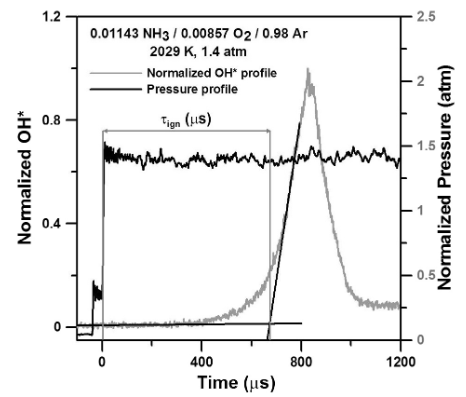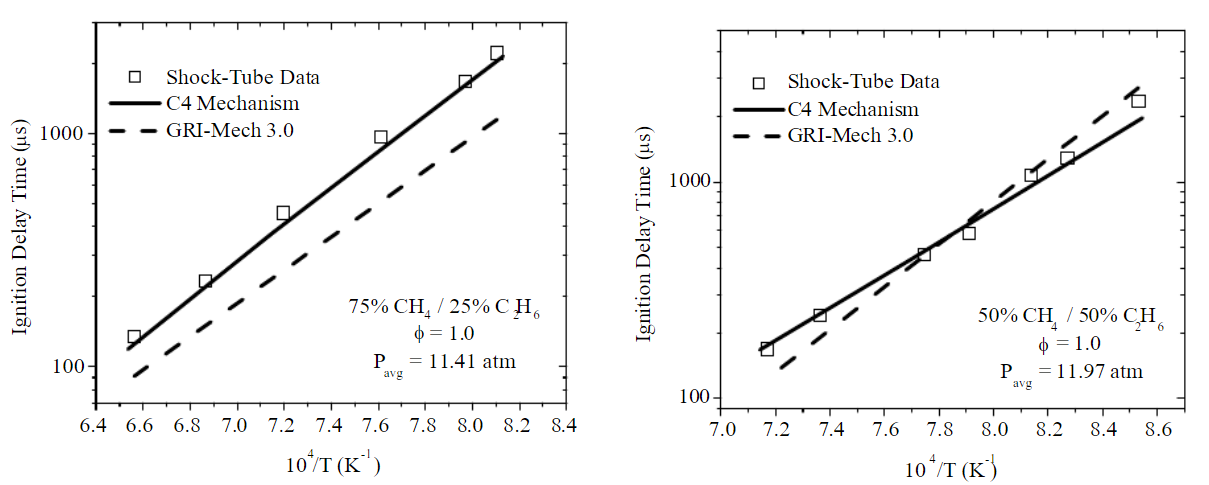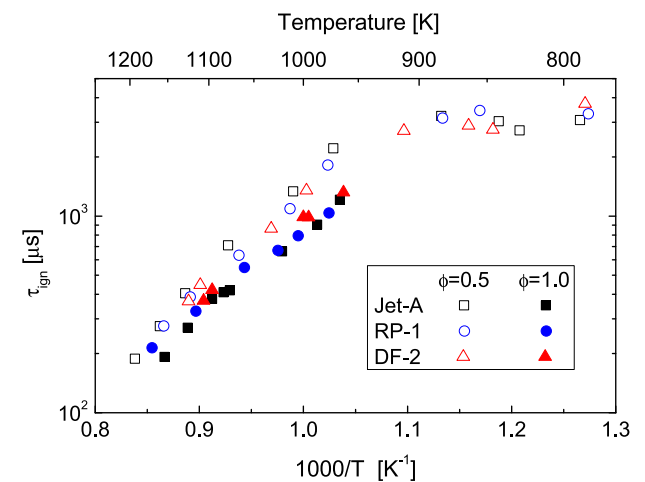Ignition delay time (IDT) is the time needed for a mixture of fuel and oxidizer to react at a certain temperature and pressure. This delay time is an important parameter for the engine designer and is typically determined experimentally. An experimental device capable of producing high-temperature and high-pressure conditions to perform such measurements is the shock tube.

Typical pressure and OH* profiles and method of determination of the ignition delay time [1].
IDT is a parameter that typically varies with temperature, pressure, fuel-to-air equivalence ratio, and the type of fuel. In our laboratory, we perform experiments to measure ignition delay times within a wide range of temperature, pressure, and equivalence ratio conditions. In a shock-tube experiment, IDT is determined by observing the pressure and OH* (or CH*) species at the test section. An example determination is illustrated in the above figure where the rise in pressure signal is the time of the arrival of the shock wave at the test section, and the rise of the OH* signal represents the ignition event. By performing several experiments at different ranges of conditions, we are able to map out the ignition delay time behavior over a certain region. These data then can be used to validate chemical kinetics models of the targeted fuel over that region. Examples of ignition delay time studies performed on natural gas mixtures and real fuels such as jet, rocket, an diesel fuels are shown in the figures below.

Ignition delay times of natural gas blends diluted in 95% Argon [2].

Ignition delay times of Jet, rocket, and diesel fuels in air [3].
References
[1] O. Mathieu and E. L. Petersen, “Experimental and Modeling Study on the High-Temperature Oxidation of Ammonia and Related NOx Chemistry,” Combustion and Flame, Vol. 162, 2015, pp. 554-570.
[2] C. J. Aul, W.K. Metcalfe, S.M. Burke, H.J. Curran, and E.L. Petersen, “Ignition and Kinetic Modeling of Methane and Ethane Fuel Blends With Oxygen: A Design of Experiments Approach,” Combustion and Flame, Vol. 160, 2013, pp. 1153-1167.
[3] S. A. Alturaifi, R. L. Rebagay, O. Mathieu, B. Guo, and E. L. Petersen, “A Shock-Tube Autoignition Study of Jet, Rocket, and Diesel Fuels,” Energy & Fuels, Vol. 33, No. 3, 2019, pp. 2516-2525.
